
Copernical Team
New Webb image captures clearest view of Neptune’s rings in decades
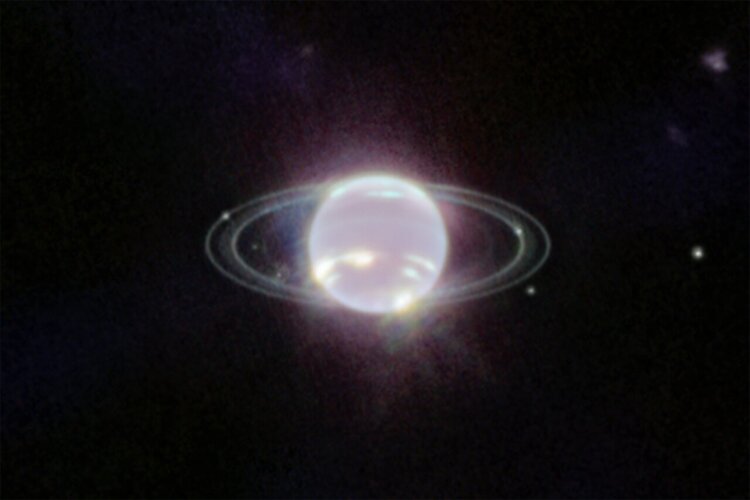
The NASA/ESA/CSA James Webb Space Telescope is showing off its capabilities closer to home with its first image of Neptune. Not only has Webb captured the clearest view of this peculiar planet’s rings in more than 30 years, but its cameras are also revealing the ice giant in a whole new light.
IAC 2022: ESA DG and astronauts meet the press
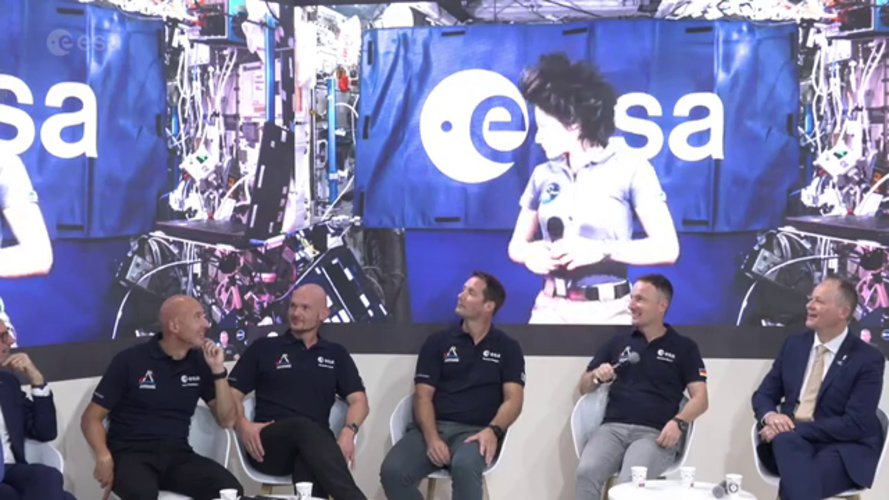 Video:
01:00:00
Video:
01:00:00
ESA astronauts Thomas Pesquet, Luca Parmitano, Alexander Gerst, and Matthias Maurer, together with the ESA Director General answered questions from journalists at the IAC in Paris. Andreas Mogensen joined remotely and Samantha Cristoforetti connected directly from the the International Space Station.
American, Russians to blast off for ISS as war rages in Ukraine
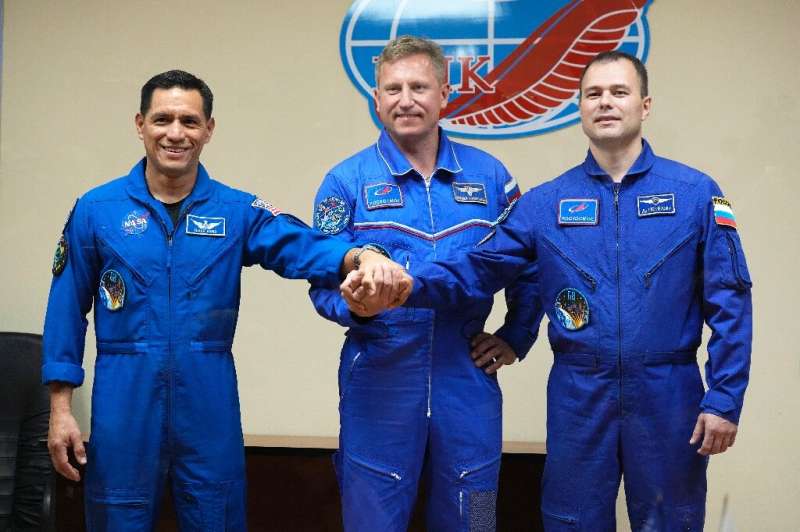
A US astronaut and two Russian cosmonauts are set to blast off to the International Space Station Wednesday on a Russian-operated flight despite soaring tensions between Moscow and Washington over Russia's invasion of Ukraine.
NASA's Frank Rubio and Russia's Sergey Prokopyev and Dmitry Petelin are scheduled to take off from the Russia-leased Baikonur cosmodrome in Kazakhstan at 1354 GMT, according to Russian space agency Roscosmos.
Rubio will become the first US astronaut to travel to the ISS on a Russian Soyuz rocket since President Vladimir Putin sent troops into pro-Western Ukraine on February 24.
In response, Western capitals including Washington have hit Moscow with unprecedented sanctions and bilateral ties have sunk to new lows.
Zooming in on drought from space

We are all aware that the summer of 2022 has been one of the hottest on record, causing drought and raging wildfires in many parts of Europe. Satellite data have been used to report the baking temperatures of the land surface and map fires, but the Copernicus Sentinel-1 radar mission has also been used to zoom in and provide very high-resolution measurements of the actual moisture content of the surface soils. Maps of northern Italy, for example, show how dry this summer has been compared to two years ago.
Weightless on Earth with VIVALDI
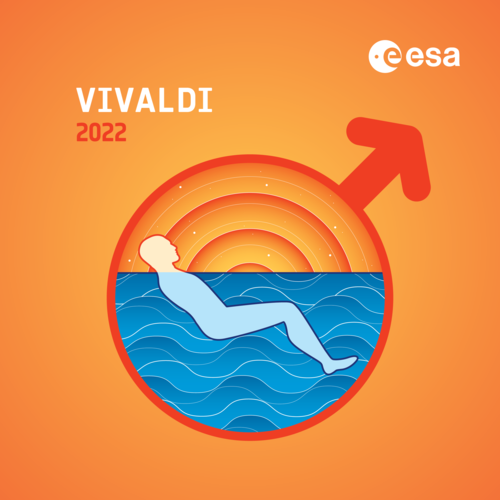
During missions on the International Space Station, astronauts’ bodies go through a wide array of changes due to lack of gravity - everything from vision to cardiovascular health to bone density is affected.
Though astronauts exercise and take supplements to mitigate some of these effects, understanding more about deconditioning in microgravity could allow physicians to design better treatments. This wouldn’t just be useful for spacefarers; it could also improve treatment strategies for common health conditions here on Earth.
Revealing spacecraft geometry effects on impact simulations for NASA's DART mission
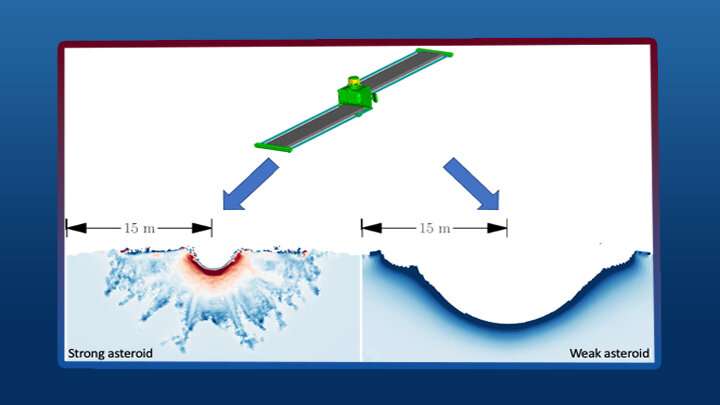
ESA tracks world-first asteroid deflection
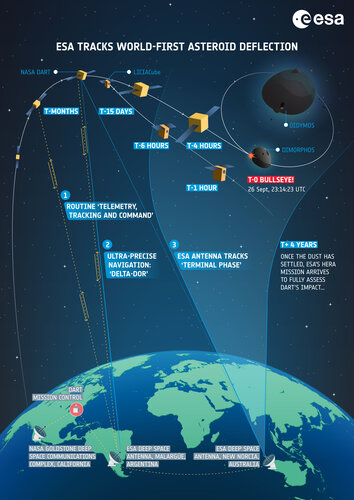 Image:
ESA's Estrack network tracks DART in the vital moments before asteroid impact
Image:
ESA's Estrack network tracks DART in the vital moments before asteroid impact SpaceX wants to bring satellite internet to Iran: Musk
 SpaceX will apply for an exemption from US sanctions against Iran in a bid to offer its satellite internet service to the country, owner Elon Musk said on Monday.
"Starlink will apply for an exemption from sanctions against Iran," Musk said in response to a tweet from a science reporter.
Musk had initially announced that the Starlink satellite internet service had been made available on
SpaceX will apply for an exemption from US sanctions against Iran in a bid to offer its satellite internet service to the country, owner Elon Musk said on Monday.
"Starlink will apply for an exemption from sanctions against Iran," Musk said in response to a tweet from a science reporter.
Musk had initially announced that the Starlink satellite internet service had been made available on Space archaeologists's offer first consultancy firm for orbital habitats
 Three well-known space archaeologists have opened a new consultancy firm, offering advice to builders and designers of any future space stations or other off-planet living arrangements.
The goal of Brick Moon is to help clients "create orbital or planetary habitats that improve productivity, reduce costs, and support crew well-being," according to its mission statement.
The compa
Three well-known space archaeologists have opened a new consultancy firm, offering advice to builders and designers of any future space stations or other off-planet living arrangements.
The goal of Brick Moon is to help clients "create orbital or planetary habitats that improve productivity, reduce costs, and support crew well-being," according to its mission statement.
The compa Vandenberg hosts 2nd Annual Assured Access to Space Industry Days Forum
 A new, exciting age in Space has begun, with established companies such as NASA, SpaceX, and the United Launch Alliance staking their claim in the space launch industry. And in this new age, comes competition, with companies emerging through the woodworks to throw their hat into the ring.
On September 15 and 16, Vandenberg Space Force Base held the second annual Assured Access to Space (AA
A new, exciting age in Space has begun, with established companies such as NASA, SpaceX, and the United Launch Alliance staking their claim in the space launch industry. And in this new age, comes competition, with companies emerging through the woodworks to throw their hat into the ring.
On September 15 and 16, Vandenberg Space Force Base held the second annual Assured Access to Space (AA 
